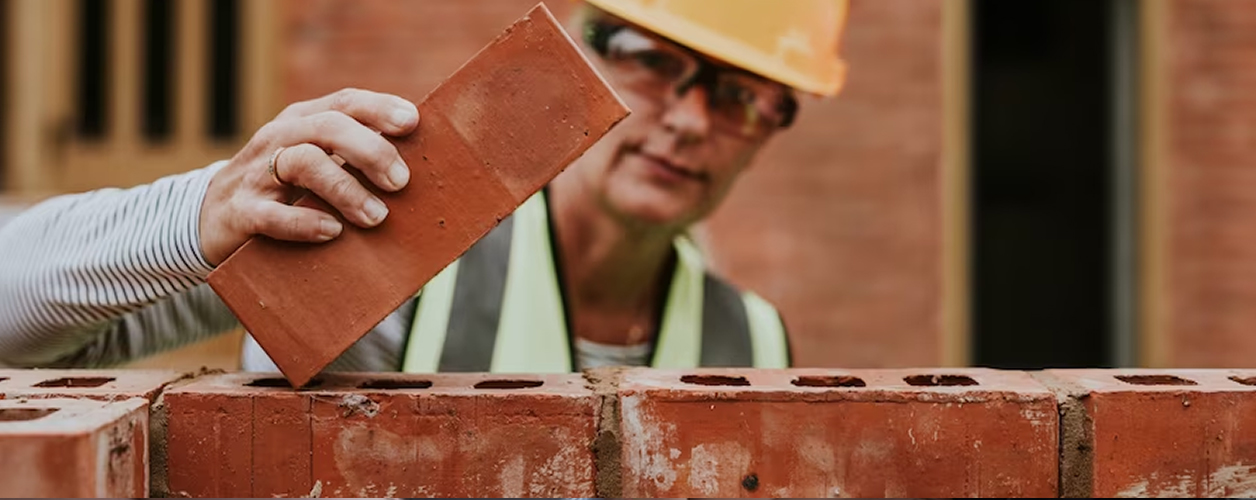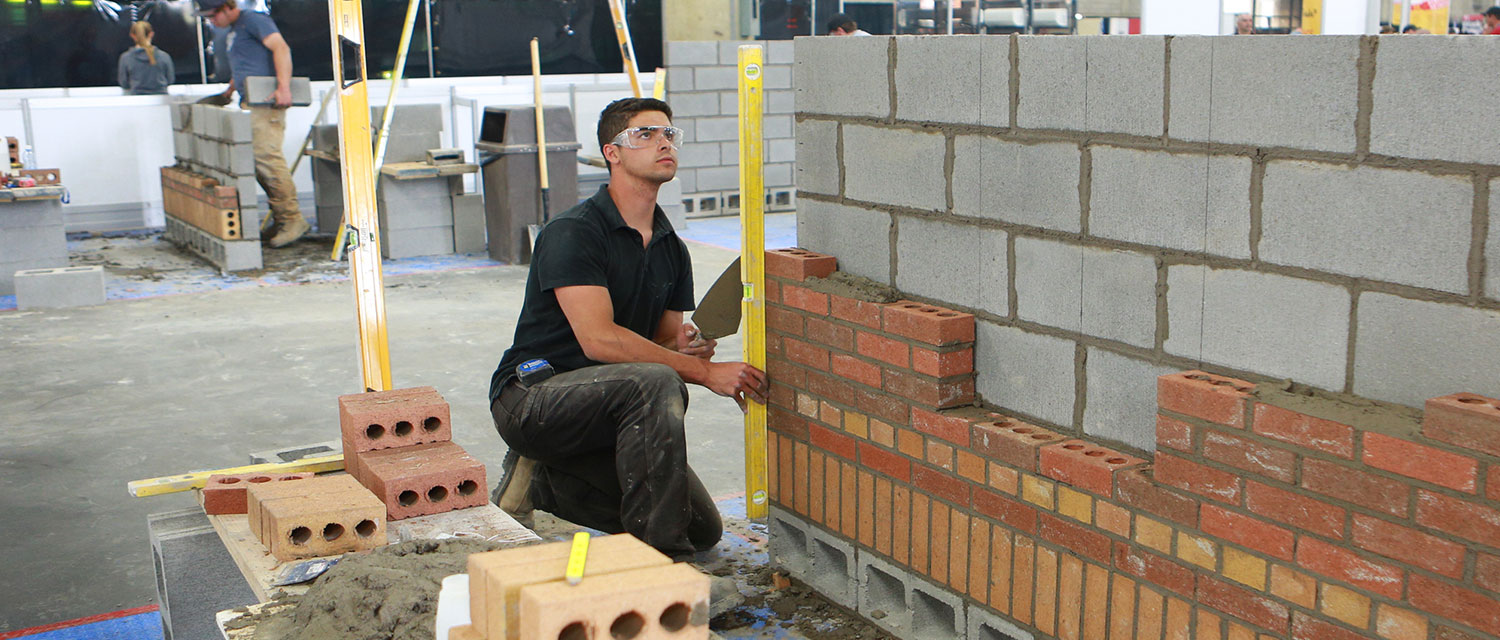One of the most durable and fascinating materials to build your home is bricks and they have a history of thousand years. Bricks also have a history where Egyptians and Romans used them to build forts, castles and churches in addition to homes. If you are wondering, “What to know before building a brick home”, we have 10 facts that state how bricks make your home flexible, stable, energy-efficient, etc. So, if you want to know more about such informative facts regarding brick homes and their construction, we made a list of them. Now, look at how bricks make your building beautiful.
Bricks And Their Making
The basic process of making bricks involves combining clay or other suitable materials with water, forming the mixture into a cuboid, and then subjecting it to heat to harden and solidify. The resulting product, known as a brick, possesses durability and strength. Technological innovations have introduced alternatives such as concrete bricks and interlocking bricks.
10 Facts: What To Know Before Building A Brick Home
Durability And Longevity
Resistant to fire, different kinds of pests and weather conditions, bricks are appreciated for their durability for decades to come. Bricks do not rot or degenerate when they are exposed to different elements in their surroundings. This, in turn, contributes to the longevity of your residential or commercial building. Bricks also provide structural stability to the building's foundation. This is because bricks are notable for their high comprehensive strength that doesn't deform easily upon supporting heavy loads. Moreover, the longevity of bricks guarantees resistance to erosion, and ageing and needs less maintenance practices to be adopted. Bricks allow adaptability to renovations too.
Climate Considerations
Bricks can bear extreme temperatures be it, hot climates or cold climates. In times of hot temperatures, bricks bring out their good thermal insulation to keep your interiors cool and reflect more sunlight. In colder temperatures, the high thermal mass of bricks acts as an advantage to the building as they absorb more heat during the daytime. During nighttime, bricks release heat and give you a comfortable environment. Moreover, if your property is in high humidity areas then bricks play a crucial role in moisture absorption. However, if your property is in coastal areas, you need less maintenance practice as bricks are highly resistant to salt damage.
Energy Efficiency
What to know before building a brick home? Here you go. Known for its natural thermal insulation properties bricks help in regulating indoor temperature. This property of brick contributes to energy efficiency as it reduces the need for cooling or heating, therefore the stabilisation of indoor temperature. As bricks have good insulation they resist the flow of thermal energy between the interior and exteriors of the building. The insulation of bricks also reduces cold loss during hotter periods and heat loss during colder periods. Hence, you can expect warming benefits in cold weather and cooling benefits in hot weather. Therefore, well-insulated property with bricks makes the overall building energy efficient and this in turn reduces workflow on HVAC systems.
Design Flexibility
Coming to design flexibility, you need to consider different aspects such as colour variety, texture options and customisation possibilities. In addition to this, you also need to consider architectural detailing, brick bond patterns, versatility in building types, shape and size of bricks. Moreover, you can think along the lines of choosing contemporary and traditional architectural styles while selecting a timeless construction. Bricks even allow adaptability to renovation in the future to seamlessly integrate new additions into your pre-existing building. Also, you can count on historical and cultural references while incorporating new ideas.
Mortar Quality
One thing that ensures the longevity and stability of your brick home is the quality of the mortar. A straightaway reason for investing in mortar quality is that it evenly distributes the load across brick masonry. If there is a force on a particular brick, surrounding bricks help in transferring the forces that are acting on the overall brick home structure and do lateral load distribution. Mortar quality also ensures adhesion strength between each brick and mortar to resist external forces like settlement wind and seismic activity.
Seismic Considerations
Seismic is related to vibrations caused to the land by earthquakes or any other natural calamity so seismic considerations are also important. What to know before building a brick home? Seismic considerations are one of the to-be-known facts you should know about building a brick home. So, you should follow certain seismic design codes if your property is in an earthquake-prone area and follow a few guidelines too. Moreover, you should also gain information on the importance of site-specific seismic hazard assessment where geographical evaluation will be done. Depending on the seismic considerations, you need to choose flexible design and materials, reinforce masonry, use specialised mortar and bricks, etc.
Construction Time
A variety of factors together contribute to the construction time and it is important to conserve each of these factors when you are planning a brick home construction. So, you need to consider all such different factors that are affecting construction time in building a brick home like the following:
- Bricklaying Process
- Curing Time For Mortar
- Complex Designs And Patterns
- Weather Conditions
- Foundation Construction
- Availability Of Skilled Labour
- Project Size And Complexity
- Prefabricated Elements Usage
- Parallel Construction Activities
- Regulatory Approvals
- Construction Planning And Coordination
- Quality Assurance Checks and
- Construction Technology And Innovations
Construction Costs
When you know what to know about building a brick home, it is important to focus on different cost aspects of building a brick home. There are also foundations and considerations such as design complexity, insulation cost and maintenance savings over time. As building a brick home is a long-term investment, the more you invest in the initial phase of construction, the longer lifespan you can expect. So, you can consider local market conditions while you are involving construction costs. Thus, while considering material cost, you count on quality and colour. Hence, make sure to choose mortar that is compatible with the brick type and has standard thermal expansion coefficients.
Foundation Considerations
To give your brick home the right foundation, you need to believe in a few important factors weight and types of bricks. A thorough soil analysis is also required when you are on the construction site of a brick home as it plays a crucial role in appropriate building foundations. This is because different types of soil have different capacities of load-bearing and distribute the weight evenly on the ground level. Regarding foundation considerations, both interior and exterior walls act as load-bearing elements. Also, consider foundation depth as it determines the prevention of frost heave and impact brick home structure.
Local Building Codes And Regulations
The first thing about local building courts and regulations please safety standards for the brick home structure and its occupants. Zoning regulations also let you know how different lands can be used in different areas. Many local regulations focus on height restrictions, the overall layout of the brick home and its setbacks. So, if you comply with these zoning regulations, then you can obtain all the permits. You can follow the permitting process to avail of necessary permissions for electrical installations, foundation work and other structural changes. Moreover, there are also fire safety regulations for windows doors and certain elements that protect your brick home from fire hazards.
Conclusion
Concluding on what to know before building a brick home, choosing bricks is always a better choice to build a home. The longevity and durability of your brick home are convincing facts. From choosing multiple designs to following certain local building codes and regulations, everything put together makes your place a beautiful abode. So, if you want a material that gives your home better temperature control and reduces electricity bills, think no more behind bricks. However, if you want better options for building construction, you can gain access to such information from professionals in the construction industry.






